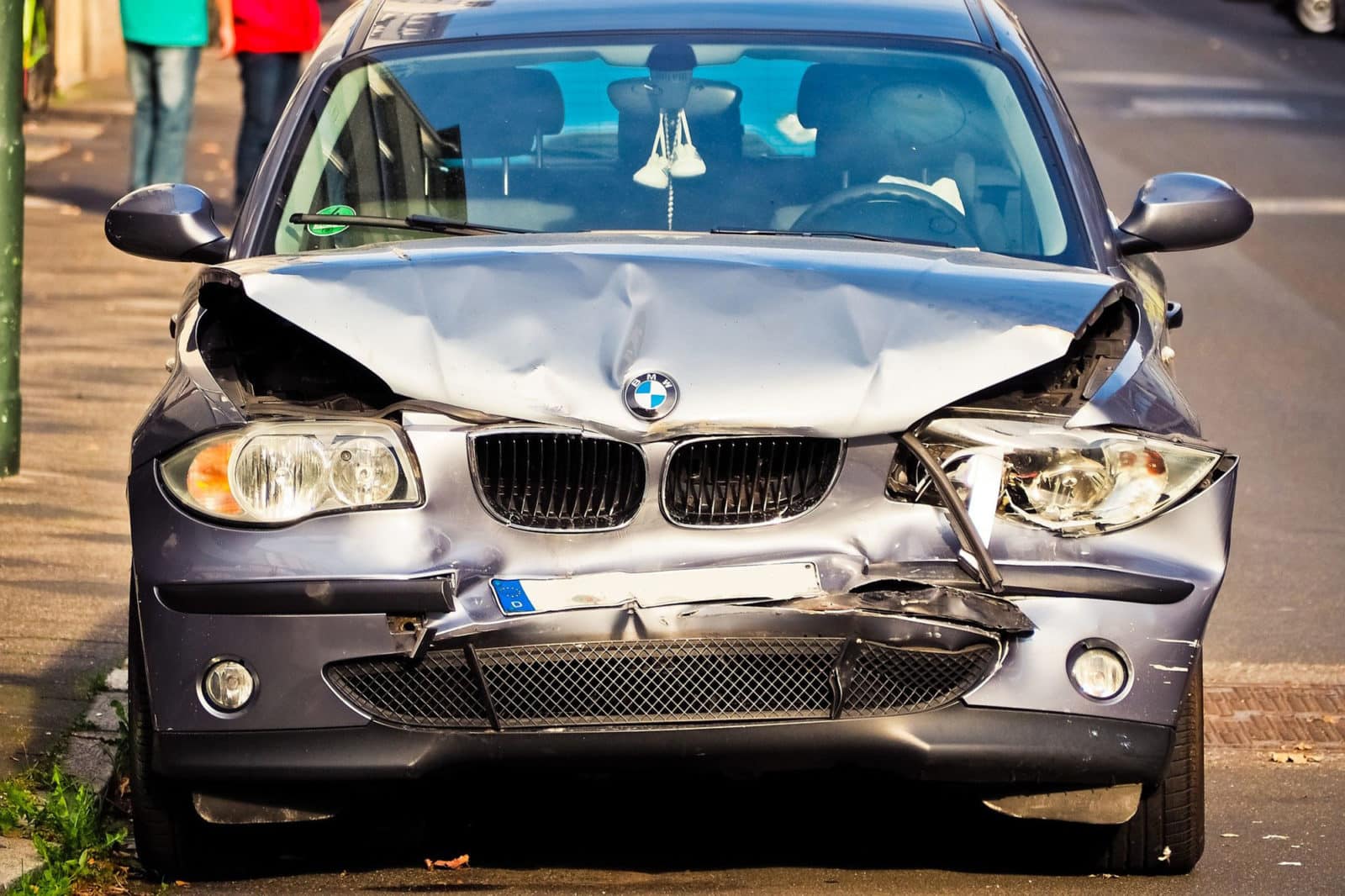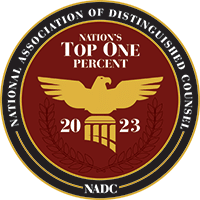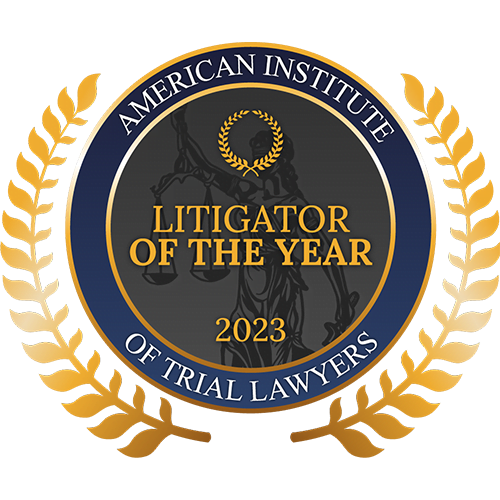According to Driver Knowledge, ‘3 million people are injured every year in car accidents.’ Automobile accidents can result in devastating injuries and, in some cases, death. Injuries that occur because of an accident can include traumatic brain injuries, broken bones, burns, and herniated discs. Herniated discs are a common injury after a wreck.
If you are wondering ‘can a car accident cause a herniated disc?’ and are seeking legal guidance to protect your rights and pursue a car accident herniated disc settlement, finding the right lawyer for car accident injury is your first crucial step towards a successful recovery.
Let’s Understand Herniated Discs
Herniated discs, often referred to as slipped or ruptured discs, are a painful and potentially debilitating spinal condition that can be caused by various factors, including car accidents.
Let’s understand what herniated discs are, the anatomy of the spine and intervertebral discs, the link between car accidents and herniated discs, recovery and rehabilitation after a herniated disc injury, and the risk of re-injury following a car accident.
What is a Herniated Disc?
At its core, a herniated disc is a spinal condition characterized by the protrusion of the inner core of an intervertebral disc through its tough outer layer. To truly understand what can cause a herniated disc, we first need to understand the complex anatomy of the spine and intervertebral discs.
The Anatomy of the Spine and Intervertebral Discs
The spine is an engineering marvel, comprising 33 vertebrae organized into five distinct regions: cervical, thoracic, lumbar, sacral, and coccygeal. Nestled snugly between each pair of these vertebrae lies an intervertebral disc. These discs play a pivotal role as shock absorbers, allowing for the flexibility and movement of the spinal column.
These intervertebral discs are composed of two key components: a tough, outer layer known as the annulus fibrosus and a gel-like, inner core called the nucleus pulposus. The outer layer offers stability and structure to the disc, while the inner core ensures its flexibility.
What Can Cause a Herniated Disc?

A multitude of factors can contribute to the development of herniated discs. Understanding what can cause a herniated disc is essential to appreciating the role that car accidents can play in this context:
Age
As we age, the natural degeneration of intervertebral discs makes them more vulnerable to herniation.
Trauma
Car accidents, along with falls and other forms of trauma, can subject the spine to immense forces, potentially leading to disc herniation.
Improper Lifting
Incorrect lifting techniques, especially when dealing with heavy objects, can strain the spine, making herniated discs more likely.
Obesity
Excessive body weight places added stress on the spine, increasing the risk of disc herniation.
Genetics
Some individuals may inherit a predisposition to disc degeneration and herniation.
How Can a Car Accident Cause a Herniated Disc?
The spine plays a significant role in the overall functionality of the body. The most important parts of the spine include the vertebrae, spinal cord, spinal nerves, and discs. Discs have two layers:
- Annulus, which are fibrous bands that protect the discs.
- Nucleus, which are inside the fibrous bands that absorb shock.
The older you become, the more brittle the parts of the spine are, and the more prone you are to injuries. When automobiles collide, the force of the impact causes the body to shift positions abruptly. For this reason, it’s not uncommon for back and spinal cord injuries to occur. The force from the collision can place pressure on the discs, resulting in a herniated disc.
The Forces Involved in Car Accidents and the Vulnerability of the Spine
The forces involved in car accidents can have a significant impact on the vulnerability of the spine, potentially leading to conditions like herniated discs.
- Impact Forces: Car accidents can generate powerful impact forces, especially in high-speed collisions. These forces are transmitted through the vehicle and can jolt the occupants’ bodies, including the spine. Sudden and severe impacts increase the risk of back injury from a car accident.
- Twisting and Torque: Car accidents often involve twisting and torquing motions of the body. These movements can place abnormal stress on the spine, leading to injuries that may result in the need for a car accident herniated disc settlement.
- Whiplash Effect: Whiplash is a common injury in car accidents and occurs when the head is suddenly jerked forward and backward. This rapid motion can strain the neck and upper spine, increasing the risk of herniated discs in the cervical region.
- Sudden Deceleration: Car accidents typically involve sudden changes in speed or direction, resulting in rapid deceleration. This abrupt slowing down of the vehicle can transmit tremendous forces to the occupants, causing their bodies to jolt forward and backward. This forceful movement can strain the spine and potentially lead to herniated discs and other back injuries.
- Seat Belt Restraint: While seat belts are essential for safety, they can also exert strong forces on the body during a collision. The restraint from a seat belt can affect the alignment of the spine and contribute to a herniated disc from car accident.
- Secondary Collisions: In some accidents, secondary collisions can occur as a result of the initial impact. These secondary collisions can subject the occupants to additional forces, further compromising the spine’s integrity and increasing the risk of a herniated disc from car accident.
- Vulnerability of Discs: The intervertebral discs, with their gel-like inner cores and tough outer layers, are particularly vulnerable to the forces generated in a car accident. The sudden and intense compression, twisting, and shearing forces can cause the discs to deform or rupture, leading to a herniated disc from car accident.
- Settlements for Back Injuries: Given the substantial forces involved in car accidents and the potential for a severe back injury from car accident, individuals injured in these accidents often pursue settlements to seek compensation for their medical expenses, pain and suffering, lost wages, and other damages. Settlement for back injuries from car accidents can play a critical role in aiding the recovery and rehabilitation of those affected by these injuries.
Symptoms of a Herniated Disc
Some of the most common symptoms of herniated discs, according to Health Line include:
- Pain and numbness, most commonly on one side of the body
- Pain that extends to your arms or legs
- Pain that worsens at night or with certain movements
- Pain that worsens after standing or sitting
- Pain when walking short distances
If you or a loved one experienced any of the symptoms above after a vehicle accident, you may have suffered a herniated disc. However, various types of injuries can occur after a wreck, which is why it’s imperative to be evaluated by a medical professional.
Types of Treatment for a Herniated Disc From Car Accident
The types of treatment necessary for a herniated disc from car accident will vary; however, some treatments may include:
- Muscle relaxers
- Prescription medications
- Therapy
- Surgery
It’s important that you receive the necessary treatment for your injuries. Failing to seek treatment can have a negative impact on your claim and may result in little to no compensation.
Receiving timely and comprehensive medical treatment is a critical step in the aftermath of a car accident, especially when pursuing a car accident herniated disc settlement or settlements for back injuries from car accidents.
How Car Accidents Lead to Herniated Discs
Car accidents, particularly those involving sudden deceleration, rear-end collisions, or side-impact crashes, can exert substantial force on the spine, resulting in spinal trauma and potentially causing disc herniation.
Research Shows Herniated Discs Are Connected To Car Accidents
According to research by the National Library of Medicine, ‘the most common injury sites are the cervical and lumbar spine.’
Statistics on car accidents and their connection to herniated discs shed light on the prevalence and implications of these spinal injuries. Among the injuries, neck and back pain remained pervasive, frequently arising from car accidents.
This type of spinal discomfort, often associated with whiplash, can be indicative of more severe injuries such as herniated discs. Unfortunately, diagnosing a herniated disc typically requires an MRI. Statistical data reinforces the prevalence of back injury from car accident, further emphasizing the link between car accidents and this painful condition.
This data underscores the significant link between car accidents and spinal injuries like herniated discs, highlighting the importance of early diagnosis, treatment, and potential settlements for back injuries resulting from car accidents.
What Type of Car Accidents Are Most Likely to Cause Herniated Discs?
While any car accident has the potential to cause a herniated disc, certain types of accidents are more likely to result in this specific injury:
- Rear-End Collisions: The sudden impact from behind can violently jolt the spine, heightening the risk of disc herniation.
- T-Bone or Side-Impact Collisions: These accidents can generate lateral forces on the spine, potentially damaging the intervertebral discs.
How To Prove Your Injury Was Caused By a Car Accident

In order to receive settlement for back injuries from car accidents, it must be proven that your injuries were directly caused by the accident. Evidence is a crucial component of a personal injury claim because it helps support your case. Evidence can include the following:
Medical History and Records
When you’re seen by a doctor, they will evaluate you and determine your injuries and document the information in your records. Medical records show diagnosis, any procedures, prescription medications, x-rays, MRIs, and any further treatment recommendations to help with your recovery.
Your medical history can also be used as evidence. For example, if you never suffered any back pain prior to the accident and now have back pain after the collision, it can help prove that the wreck caused your injuries.
Personal Statement
Your personal statement about the accident and the pain and suffering you’re experiencing can help support your claim as well. It’s important to be honest about how you feel and how your injuries affect your daily life.
To build a strong case, collecting evidence is vital. For this reason, we recommend hiring an experienced lawyer for car accident injury to help gather the necessary information to support your claim. This can increase your chances of obtaining the compensation you rightfully deserve.
Disc Herniation Recovery and Rehabilitation
Recovering from a herniated disc typically involves a multifaceted approach including medical treatment and rehabilitation. Here’s a closer look at the critical aspects of post-accident care:
The Importance of Post-Accident Care and Rehabilitation
Seeking immediate medical attention after a car accident is paramount. A thorough physical examination, complemented by diagnostic imaging such as magnetic resonance imaging (MRI), can facilitate an accurate diagnosis of a herniated disc. Early intervention is pivotal to enhancing the prospects for a full recovery.
Physical Therapy and Exercises for Herniated Disc Recovery
Physical therapy serves as a cornerstone of herniated disc rehabilitation. Experienced physical therapists can devise tailored exercise regimens aimed at strengthening the back and core muscles, improving flexibility, and alleviating pain. In some cases, epidural steroid injections may be considered for pain management.
Risk of Re-Injury Following a Car Accident
Regrettably, individuals who have suffered a herniated disc due to a car accident are at a heightened risk of re-injury. It’s crucial to exercise caution and heed medical advice to minimize the risk of any further back injury from car accident. Activities involving heavy lifting or potential trauma to the spine should be approached with care, and proper body mechanics must be adhered to.
In conclusion, herniated discs are a prevalent consequence of car accidents, stemming from the immense forces and trauma exerted on the spine during these events. Prompt medical attention, a comprehensive rehabilitation regimen, and diligent precautions to prevent re-injury are indispensable steps on the path to recovery.
For those affected, consulting with a lawyer experienced in car accident injuries can provide valuable insights into legal options, including potential settlements for medical expenses, pain and suffering, and other damages incurred as a result of this serious injury.
Contact a Lawyer for Car Accident Injury to Learn More About Your Legal Options
 If you or a loved one was injured in a vehicle accident due to a negligent driver and suffered a herniated disc, you may be entitled to financial compensation. At The Law Offices of Blaine Barrilleaux, our auto accident attorneys are dedicated to helping injured victims in Louisiana receive the justice they deserve.
If you or a loved one was injured in a vehicle accident due to a negligent driver and suffered a herniated disc, you may be entitled to financial compensation. At The Law Offices of Blaine Barrilleaux, our auto accident attorneys are dedicated to helping injured victims in Louisiana receive the justice they deserve.
Compensation can help cover the various expenses related to your accident such as medical bills, lost wages, property damage and more. In order to effectively determine if you’re entitled to benefits and the amount, the details of your case will need to be evaluated.
Concerned about the risks of herniated discs in car accidents? Contact us now to discover what can cause a herniated disc and take proactive steps to protect your health.
To learn more about your legal options and if you can receive benefits, call our office today at (337) 221-4910 or fill out our free consultation form.









